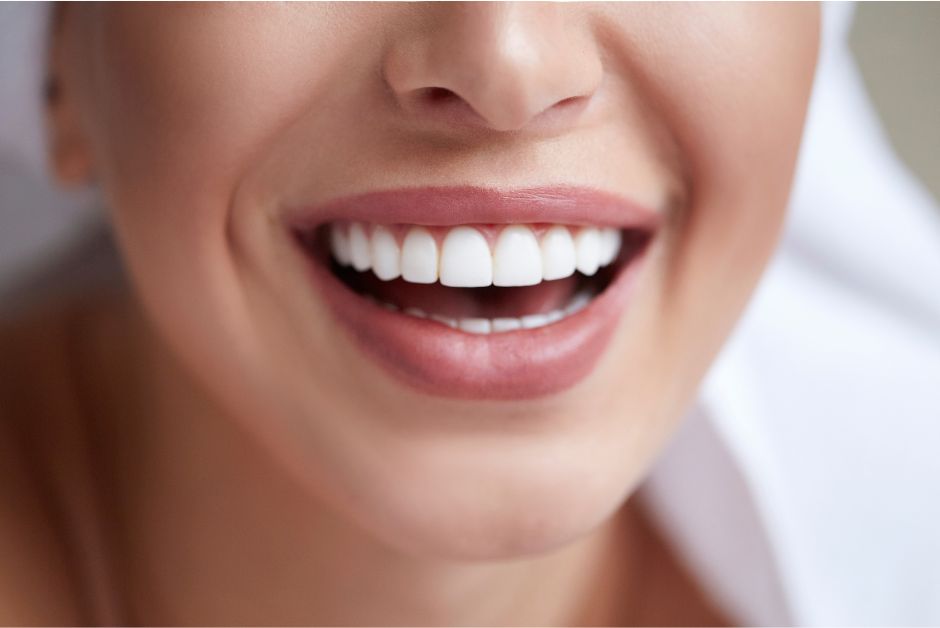

Proper dental care is vital for overall health, no matter your age.
It’s important for every member of your family to establish a solid routine of brushing, flossing, and scheduling regular dental checkups as early as possible. Good oral health habits should continue throughout life, well into your senior years.
Pregnant mothers, toddlers, teens, adults, and seniors should all follow specific dental practices, and look out for certain oral health issues that may arise at each stage of life.
Understanding the common dental issues that arise during different life stages can help you maintain a healthy smile for years to come.

During childhood and adolescence, the primary focus is on preventive dentistry to ensure the healthy growth and development of permanent teeth.
At this stage, some of the most common dental concerns include tooth decay, often caused by poor oral hygiene habits or a diet high in sugary foods and drinks.
If left unchecked, tooth decay can lead to more severe oral problems such as cavities, infections, and even premature tooth loss, all of which can affect the proper alignment of teeth.
Another prevalent issue in this age group is malocclusion, or misalignment of the teeth and jaws. This condition can result from genetics, habits like thumb-sucking, or early loss of baby teeth, and it often requires orthodontic treatment to correct.
Addressing malocclusion early can prevent long-term complications, such as difficulty chewing, speech problems, or uneven wear on teeth.
Routine visits not only provide professional cleanings to remove dental plaque and tartar that regular brushing may miss, but they also allow for the early detection of potential issues.
Dentists can offer preventive treatments like fluoride applications and dental sealants to protect young teeth from decay and can monitor the development of the jaw and teeth to catch any alignment issues early.
This proactive approach ensures that problems can be addressed before they escalate into more serious conditions that require extensive treatment.

During the teenage years, the importance of oral care becomes critical as permanent teeth are fully developing and lifelong oral hygiene habits are being formed. This is a critical period for maintaining good oral health, as teenagers often face several unique dental challenges.
One common issue during this time is the eruption of wisdom teeth, typically occurring between the ages of 17 and 25.
These third molars can lead to problems like overcrowding, impaction, or misalignment, especially if there isn’t enough space in the mouth for them to properly emerge.
Impacted wisdom teeth can cause pain, swelling, infection, and damage to neighbouring teeth, often requiring extraction to prevent further complications.
In addition to wisdom teeth, many teenagers may require orthodontic treatment to correct misalignment or bite issues, such as overbites, underbites, or crooked teeth.
Braces or clear aligners are commonly recommended to improve the appearance and function of the teeth, and early intervention can help prevent more serious problems later in life.
Teenagers are also prone to developing unhealthy habits, such as excessive consumption of sugary foods and beverages, which significantly increase the risk of tooth decay and gum disease. Soft drinks, energy drinks, and snacks high in sugar can erode enamel and lead to cavities.
It is crucial for teens to practice good oral hygiene, including brushing twice a day, flossing, and using mouthwash, to counteract these risks. Educating teens about the long-term consequences of poor dental habits, such as gum disease or tooth loss, can motivate them to take better care of their oral health.
Moreover, teenagers who engage in contact sports should consider wearing mouthguards to protect their teeth from injury.
Dental trauma from sports activities can result in chipped, cracked, or even lost teeth, which can have long-term effects on oral health and appearance.
Overall, maintaining regular dental check-ups during the teenage years is essential for monitoring tooth development, preventing dental problems, and reinforcing good oral hygiene practices.
By addressing these issues early, teenagers can set the foundation for a lifetime of healthy teeth and gums.

As we transition into adulthood, the importance of oral care and maintaining good oral hygiene becomes increasingly important, as the risk of developing gum disease (periodontal disease) rises significantly.
Gum disease is often caused by the buildup of plaque and tartar due to inconsistent brushing and flossing. In its early stage, known as gingivitis, gum disease can cause red, swollen, and bleeding gums.
If left untreated, it can progress to periodontitis, a more severe form that can damage the supporting structures of the teeth, leading to tooth loss. Regular dental check-ups and professional cleanings are crucial to prevent and manage gum disease, especially as the risk increases with age.
In addition to gum disease, other dental issues become more common during adulthood.
Tooth sensitivity is one such concern, often caused by the gradual wear of enamel, gum recession, or exposure of the tooth roots.
This sensitivity can lead to discomfort when consuming hot, cold, or sweet foods and beverages, and it requires proper treatment, including using desensitising toothpaste and avoiding foods that exacerbate the condition.
Tooth discoloration is another frequent issue in adulthood, often caused by aging, consumption of staining substances (such as coffee, tea, or tobacco), and wear on the enamel that exposes the yellowish dentin beneath.
While discoloration may be cosmetic, it can affect self-confidence. Teeth whitening treatments, whether at-home or professional, can help restore a bright smile.
Adults are also more susceptible to oral health problems related to chronic diseases.
Conditions like diabetes can have a direct impact on oral health, increasing the risk of gum disease, dry mouth, and infections. Diabetics should be vigilant about their oral health, as high blood sugar levels can make it harder for the body to fight infections, leading to more severe gum disease.
Furthermore, other systemic conditions like heart disease and osteoporosis have been linked to oral health, making regular dental check-ups essential for managing both dental and overall health.
Regular dental visits in adulthood are critical for identifying and addressing these issues early.
Dentists can provide preventive care, such as fluoride treatments or dental sealants, and offer advice on improving your oral care routine, including proper brushing and flossing techniques. They can also monitor for signs of oral cancer, which becomes a concern as we age.
By being aware of the importance of oral care, prioritising dental health and staying proactive, adults can maintain healthy teeth and gums, reduce the risk of more serious problems, and protect their overall health.

By middle age, the wear and tear on our teeth become more noticeable, and oral health issues that may have been minor earlier in life can start to escalate. This period often brings specific dental challenges that require increased attention and care.
One of the most prevalent concerns is the progression of gum disease.
As we age, gum disease, if left untreated, can worsen, leading to periodontitis, where the gums pull away from the teeth, forming pockets that become infected.
This can result in the breakdown of the bone and connective tissue that hold the teeth in place, eventually causing tooth loss.
Regular dental check-ups, deep cleanings, and consistent oral hygiene practices, such as brushing and flossing, are essential in managing gum disease as we grow older.
Tooth decay is another common problem in middle age, particularly around old fillings.
Over time, fillings can weaken or crack, leaving the tooth vulnerable to new decay. This can lead to the need for further restorative dental work, such as replacing fillings or even crowns.
Keeping an eye on older dental work through regular visits to the dentist is key to preventing small issues from becoming more serious problems.
Root decay becomes more of a concern as well, primarily due to receding gums. As gums recede, the roots of the teeth, which do not have the protective enamel that crowns have, become exposed to bacteria and acids, making them more prone to decay.
Root decay can lead to sensitivity, pain, and infection, requiring specialised treatments like root canal therapy or the application of fluoride to strengthen the exposed roots.
Tooth loss is another common issue in middle age, whether due to untreated decay, advanced gum disease, or injury.
Losing teeth not only affects the ability to chew and speak properly, but it can also lead to further oral health complications, such as shifting teeth or bone loss in the jaw.
Many adults in this age group turn to restorative solutions like dental implants, bridges, or dentures to replace missing teeth. Dental implants are a popular choice as they provide a long-lasting and natural-looking solution by integrating with the jawbone to support the replacement tooth.
In addition to these common issues, dry mouth may also become more prevalent in middle age, often as a side effect of medications or hormonal changes.
A lack of saliva can increase the risk of cavities, gum disease, and bad breath, making it important to stay hydrated and possibly use products like artificial saliva or mouth rinses to alleviate dryness.
Being aware of the importance of oral care and maintaining good oral health during middle age is crucial for managing these issues.
Regular check-ups allow dentists to monitor for problems like gum disease, root decay, and old fillings that may need replacement.
Staying proactive with daily oral hygiene, including brushing with fluoride toothpaste and flossing, as well as avoiding sugary or acidic foods, can help minimise the wear and tear on teeth.
By addressing dental problems early and maintaining a consistent care routine, individuals can protect their oral health and prevent the need for more invasive treatments later in life.

In the senior years, maintaining good oral health can become more challenging due to the presence of other health conditions and the side effects of medications.
Oral health problems are more likely to arise as the body ages, and managing them requires careful attention, particularly as the mouth plays a key role in overall well-being and quality of life.
One of the most common dental issues faced by seniors is dry mouth.
This condition is often a side effect of medications prescribed for chronic health conditions like high blood pressure, diabetes, or arthritis.
Saliva is essential for neutralising acids and washing away food particles, so a lack of saliva increases the risk of tooth decay, gum disease, and bad breath.
Older people with dry mouth are more susceptible to oral infections and cavities, particularly around the roots of the teeth. To manage dry mouth, staying hydrated, using saliva substitutes, or sugar-free lozenges can help stimulate saliva production.
Root decay is another prevalent problem among older adults, largely due to receding gums, which expose the roots of the teeth.
Unlike the crowns of teeth, the roots do not have a protective layer of enamel, making them more vulnerable to decay when exposed.
Root decay can lead to pain, infection, and even tooth loss if not treated promptly. Fluoride treatments, maintaining proper oral hygiene, and regular dental visits can help mitigate the effects of root decay.
Gum disease (periodontal disease) also becomes a major concern in the senior years, particularly for those who have neglected oral hygiene in earlier decades.
As gum disease progresses, it can lead to significant tooth loss, infections, and deterioration of the jawbone. Advanced gum disease not only affects the ability to chew and speak, but it is also linked to systemic health problems like heart disease, stroke, and complications with diabetes.
Regular professional cleanings and early intervention are essential to managing gum disease.
Tooth loss is a common issue for seniors as well, whether from untreated decay, advanced gum disease, or injury.
Missing teeth can lead to difficulty eating, malnutrition, and speech problems, while also affecting self-confidence and social interaction. Many seniors opt for restorative treatments like dental implants, bridges, or dentures to replace missing teeth.
These options help restore function and appearance, but they also require proper maintenance to ensure long-term success. For example, dentures must be cleaned daily, and dental implants need regular monitoring to ensure they remain stable.
In addition to these specific dental concerns, seniors may also experience oral cancer, which becomes more common with age.
Regular dental check-ups can help detect early signs of oral cancer, such as sores that do not heal, persistent mouth pain, or white or red patches on the gums, tongue, or lining of the mouth. Early detection is critical for successful treatment.
It’s also important to recognise that oral health is closely connected to overall health. Poor oral health can exacerbate existing medical conditions like diabetes or cardiovascular disease, while infections in the mouth can spread to other parts of the body, further complicating health issues.
As mobility and dexterity may decrease with age, maintaining a daily oral hygiene routine can become more difficult. Electric toothbrushes, water flossers, and assistive devices can make it easier for seniors to care for their teeth and gums.
Regular dental visits are crucial in the senior years to monitor oral health, address emerging problems, and maintain overall well-being.
Dental care at this stage should focus not only on treating specific issues like decay or gum disease but also on prevention and the management of any underlying conditions.
By prioritising oral health in the senior years, individuals can improve their quality of life, preserve their ability to eat and speak comfortably, and avoid more serious health complications.

Oral health is a vital component of overall well-being that transcends age, playing a significant role in our lives from childhood through to older age.
Each stage of life presents unique dental challenges and opportunities for preventative care that can shape our long-term health. From ensuring the proper growth of permanent teeth in children to managing gum disease and tooth loss in seniors, proactive dental care is essential.
By fostering good oral hygiene practices early on and continuing them throughout life, you can prevent common dental issues like tooth decay, gum disease, and sensitivity.
Regular dental check-ups and cleanings provide critical opportunities for early detection and intervention, helping to address potential problems before they escalate into more serious conditions.
Moreover, understanding the connections between oral health and systemic health emphasises the importance of maintaining a healthy mouth at every life stage. Poor oral health can have far-reaching effects, influencing chronic diseases and overall health outcomes.
In essence, prioritising oral health is not just about achieving a beautiful smile; it is about enhancing quality of life, ensuring nutritional well-being, and reducing the risk of serious health complications.
By recognising the importance of oral health across the lifespan and committing to regular dental care, individuals can enjoy a healthier, happier future with strong teeth and gums.
With its revolutionary, oxygen-enriched formula, bluem® allows you to dramatically improve your oral health routine with high-quality oral care products.
Sold in more than 30 countries worldwide, our oral care products are specifically developed to prevent and treat oral problems such as inflamed gums, periodontitis and peri-implantitis.
View our complete product range here.
Remember; healthy mouth, healthy body.
